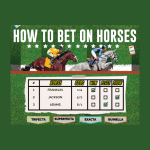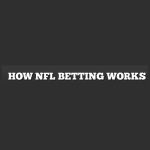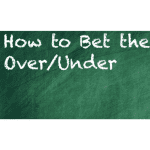Explanation of Sportsbooks
Sportsbooks serve as the go-to destination for individuals looking to place bets on various sporting events. These establishments, which can be physical locations or online platforms, provide a wide range of betting options for sports enthusiasts. They offer odds and lines on different sporting events, allowing bettors to wager money on outcomes ranging from simple wins and losses to more intricate prop bets.
In addition to offering a platform for placing bets, sportsbooks also play a crucial role in setting the odds for different events. Experienced oddsmakers work behind the scenes to analyze data, track trends, and assess various factors that could influence the outcome of a game. By setting the odds, sportsbooks aim to balance the betting action on both sides of a wager, ensuring a fair playing field for bettors and a profitable operation for the sportsbook itself.
House Edge in Sports Betting
Sportsbooks adjust the odds on sporting events in their favor, ensuring a built-in advantage known as the house edge. This slight edge allows sportsbooks to make a profit regardless of the outcome of a particular game or event. By offering slightly less favorable odds than the true probability of an event occurring, sportsbooks ensure that over time, they will come out ahead.
In sports betting, the house edge varies depending on the type of bet being placed and the sportsbook itself. Understanding the house edge is crucial for bettors to grasp as it can significantly impact their overall profitability. While the house edge may be small on individual bets, it can add up over time, making it essential for bettors to consider when strategizing their wagers.
Spread and Moneyline Bets
For those new to sports betting, spread and moneyline bets are two of the most common wagering options available. With spread betting, oddsmakers set a margin of victory that the favored team must win by in order for the bet to be successful. On the other hand, moneyline betting involves simply picking the team that will win the game outright, with odds assigned to each team based on their perceived chances of winning.
Spread betting adds an extra layer of complexity to traditional moneyline betting, as it requires bettors to consider the margin of victory rather than just the outcome of the game. This type of bet can be particularly popular in games where one team is heavily favored over the other, as it allows for more balanced wagering options. Moneyline bets, on the other hand, offer a more straightforward approach to sports betting, making them a good option for beginners or those looking for a simpler wagering experience.
Parlay and Teaser Bets
Parlay bets involve combining multiple individual bets into one larger wager. The advantage of parlay bets is the potential for a higher payout compared to placing each bet individually. However, all the bets in a parlay must win for the overall bet to be successful, making it a higher risk option for bettors. The more bets included in the parlay, the higher the potential payout, but also the lower the likelihood of winning.
Teaser bets, on the other hand, allow bettors to adjust the point spread or totals line in their favor for a reduced payout. Bettors can combine two or more selections and receive adjusted lines in their favor, making it easier to win compared to traditional straight bets. While teaser bets may seem like a more favorable option due to the adjusted lines, they typically come with lower payouts due to the reduced risk involved. Bettors should carefully consider the potential payout and likelihood of winning when deciding between parlay and teaser bets.
Proposition Bets
Proposition bets in sports betting, also known as prop bets, involve wagering on specific events within a game that are not necessarily related to the final outcome. These bets can be placed on various scenarios such as which team will score first, how many touchdowns a specific player will make, or even the outcome of the coin toss. Proposition bets add an element of excitement and variety to sports betting, allowing bettors to potentially profit from their knowledge of the game beyond just predicting the winner.
One key aspect of proposition bets to consider is that they often have higher payouts but also come with higher risk compared to traditional bets. Since prop bets are based on specific events within a game, they can be more unpredictable and rely heavily on chance. It’s essential for bettors to carefully analyze the odds and potential outcomes before placing prop bets to make informed decisions and increase their chances of winning.















